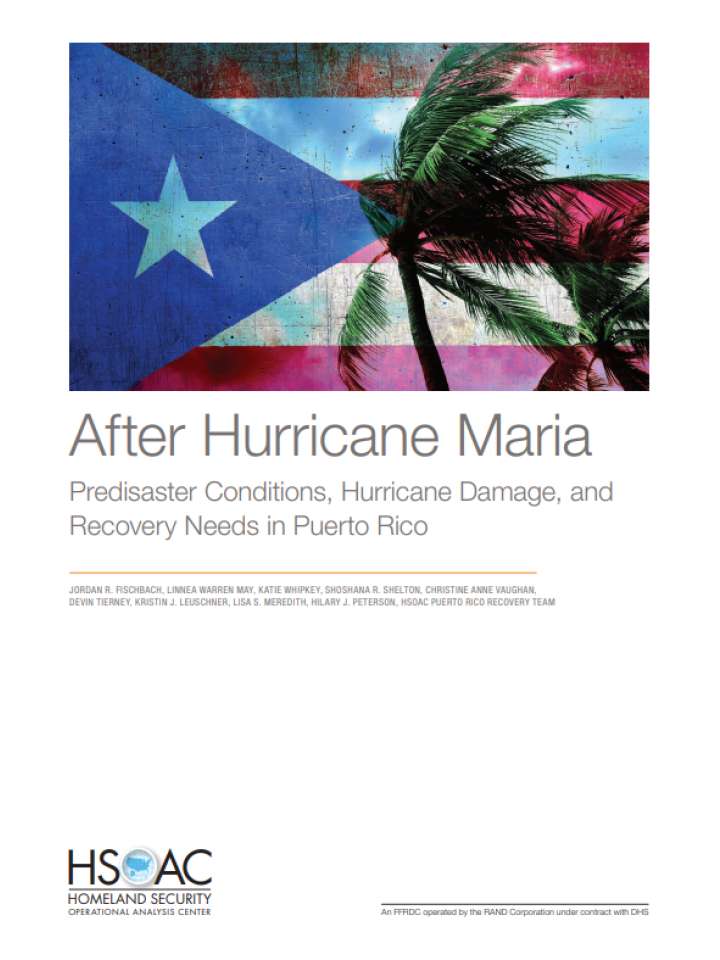After hurricane Maria predisaster conditions, hurricane damage, and recovery needs in Puerto Rico
To support development of Puerto Rico’s short- and long-term recovery and resilience plan, experts conducted a comprehensive assessment of the commonwealth’s challenges and the damage caused by the 2017 hurricanes. They identified short- and longer-term needs for Puerto Rico to recover and to build resilience to future storms; economic, social, and environmental trends; and ongoing governance challenges. This report summarizes their work.
Key findings
- Puerto Rico faced extensive and deep-rooted stressors prior to the 2017 hurricane season.
- Hurricane Maria caused catastrophic damage to Puerto Rico’s lifeline infrastructure systems and housing.
- Prehurricane conditions and damage to lifeline infrastructure affected response and recovery in every sector.
RECOMMENDATIONS
- In the short term (within two years of publishing the recovery plan), Puerto Rico needs to address remaining cross-sectoral recovery priorities: Complete damage and needs assessments that remain incomplete, repair critical infrastructure that remains nonfunctioning or in disrepair, promote efforts to improve governance and fiscal accountability, update emergency-preparedness plans, clearly establish responsibility for infrastructure assets and services, and repair homes that remain damaged or destroyed.
- In the longer term (the next decade or so), Puerto Rico will need to focus on key resilience challenges: Address economic conditions that precipitated population loss, worsened storm damage, and currently inhibit recovery; pursue municipal priorities for economic development and recovery; scale housing, social service, health, education, and infrastructure systems for current and future populations; reduce the vulnerability of infrastructure in Puerto Rico to natural hazards and build it to 21st-century standards; address building-permit and code-enforcement gaps that reduce the effectiveness of Puerto Rico’s utilities and perpetuate activity in the informal sector; and report timely and accurate data on the commonwealth’s economic and fiscal status.
Explore further
